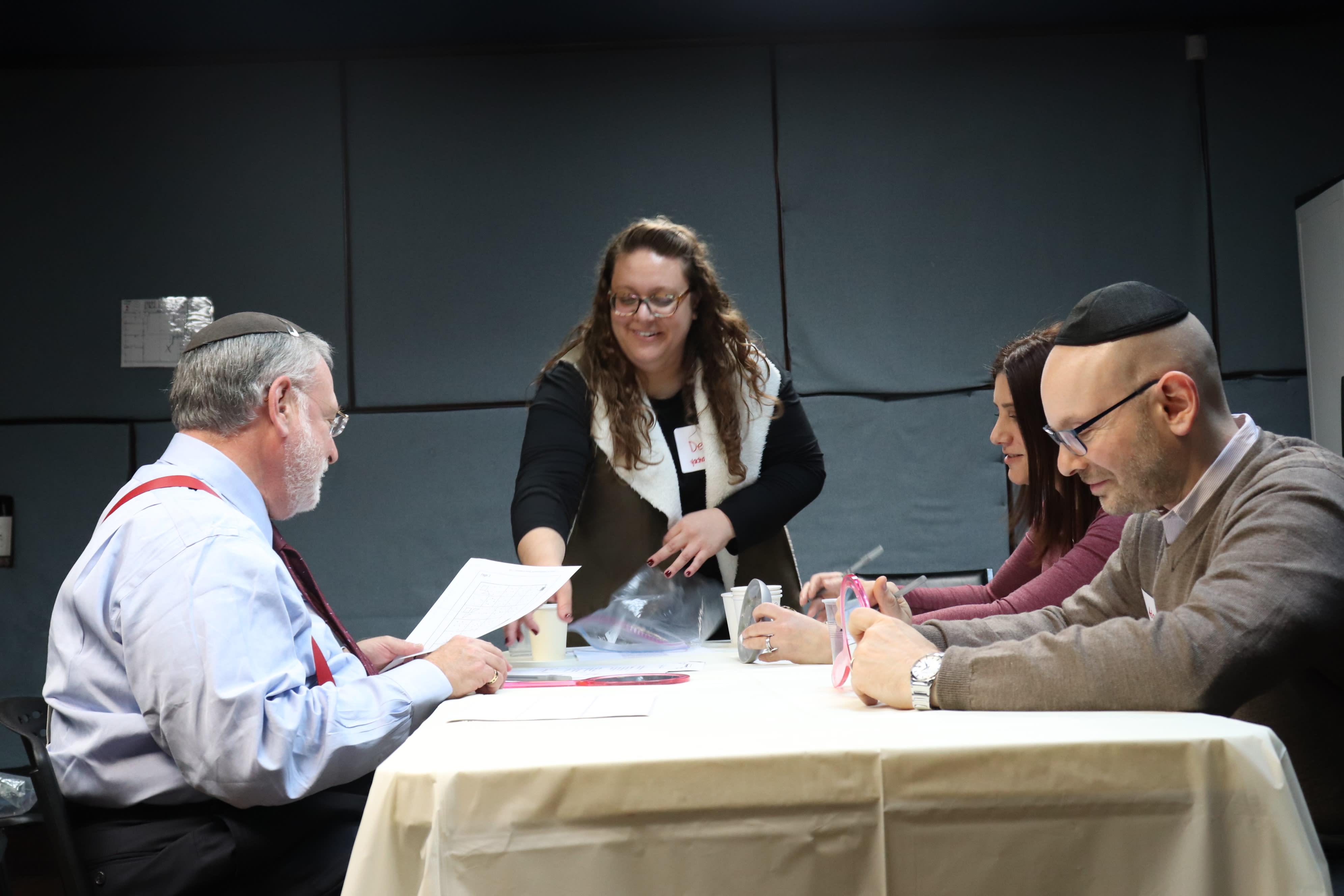Reading. Writing. Having a conversation.
These functions help us go about our daily lives but for an individual with disabilities, these seemingly effortless activities come with unique challenges.
Last week I had the privilege, along with a number of colleagues, to visit the Jewish Union Foundation (JUF) “day hab” facility in Brooklyn, a program of Yachad. The visit was part a renewed effort for OU staff members to gain hands-on knowledge of the programs we work for and with each day. Working in the national office, it is only on rare occasions that we get a glimpse of this sort of front-line action.
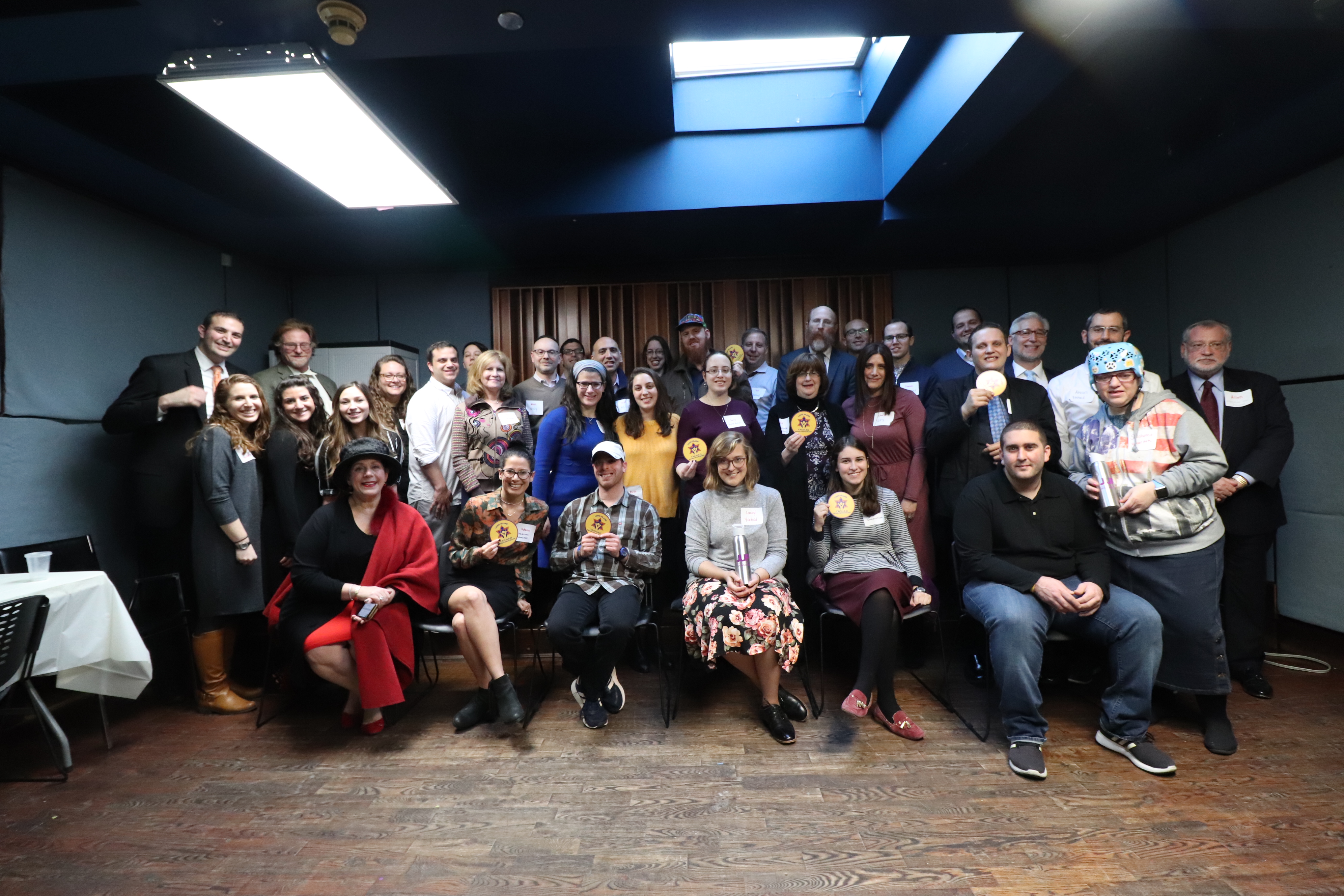
Moving between various workstations, we experienced what the incredible day hab staff does each day and learned about the difficulties facing Yachad members as they enter the workplace. Perhaps most importantly, we witnessed how Yachad is able to arm its members with the skills they need to get and maintain their dream jobs.
My visit began with a stop at the production center for Yachad Gifts. Along with offering some of the most delectable and well-designed gift baskets you could imagine, Yachad Gifts trains and employs individuals with disabilities.
From taking orders to assembling the baskets, to inventory, packing and shipping, it’s an incredible amount of work that gets done in a modest work space. According to legend, in the days leading up to Purim, you’re lucky if you can get in the door.
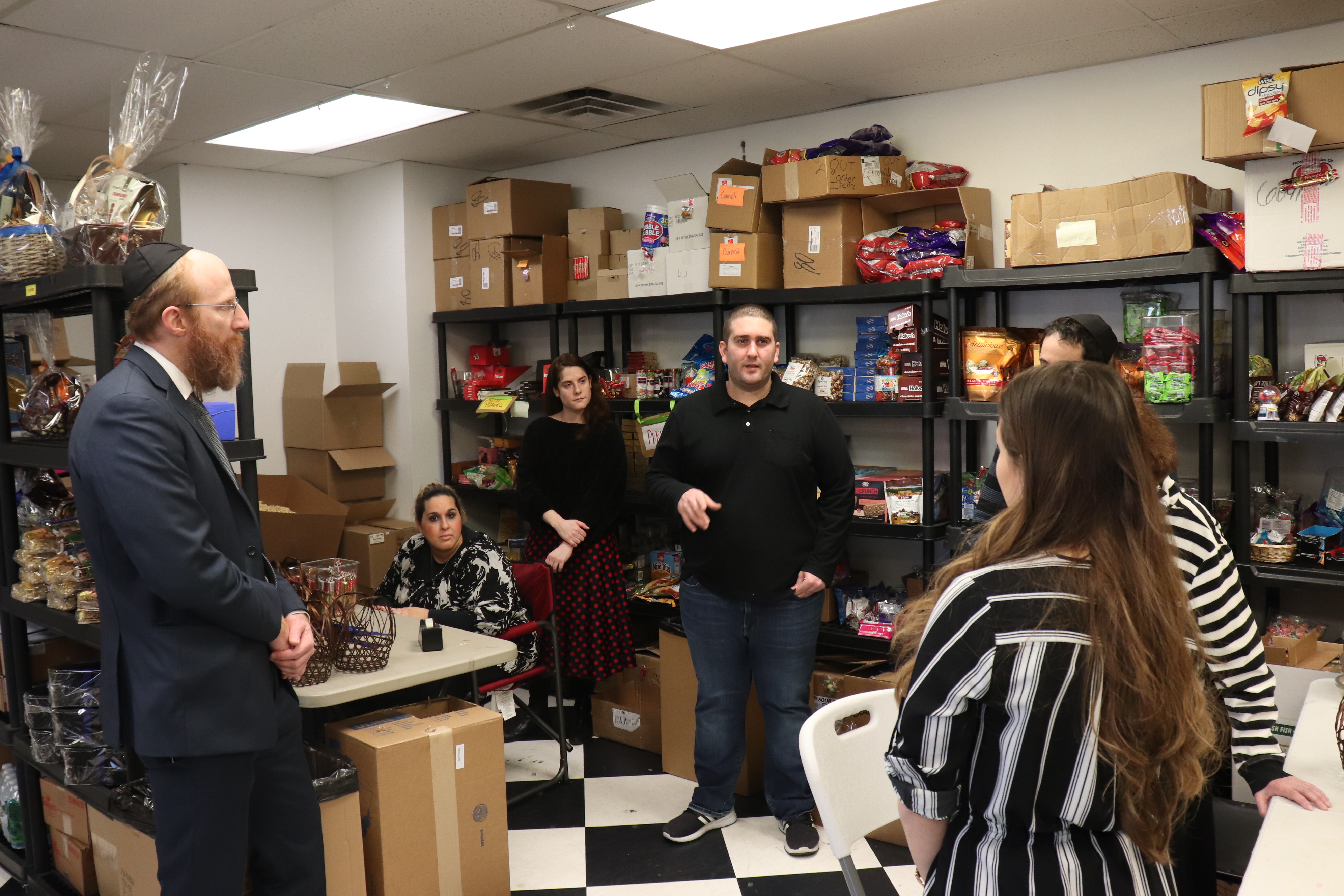
A Yachad member named Shira walked me through the assembly of a basic basket, step-by-step. My completed work didn’t quite match up to her perfect arrangement but her genuine and heartfelt encouragement made me feel like I’d just won a championship.
The next stop was a conference room where we walked through exercises to learn the specific challenges facing Yachad members in the workforce. One such scenario saw a couple of my colleagues blindfolded and then given a handful of change. They then had to sort the coins by denomination, using only their sense of touch.
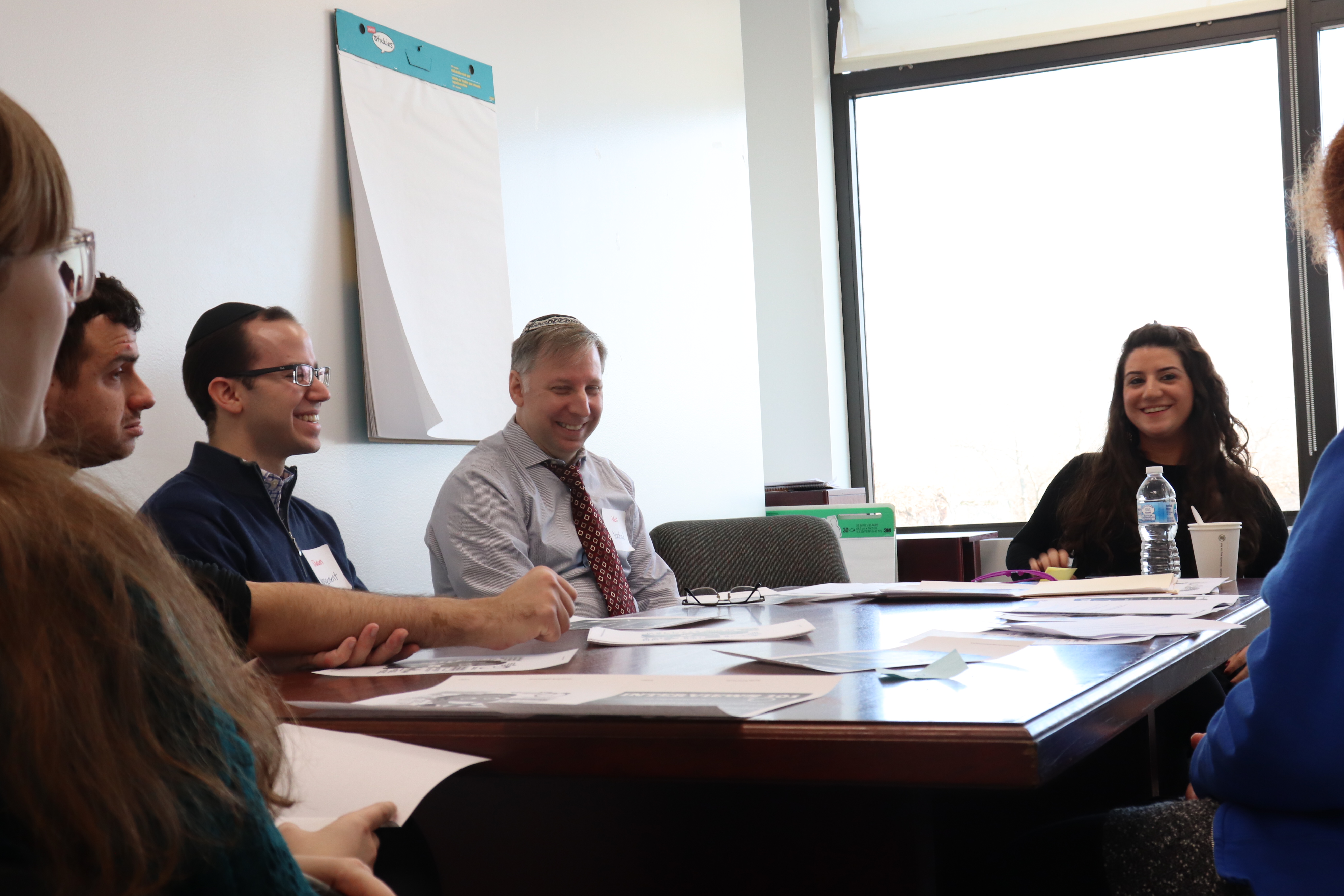
For a Yachad member, “blindfolds” like this come up all the time on the job, particularly in the early stages, and JUF day hab gives them the vocational skills they need to overcome these significant roadblocks.
In another exercise, we were asked to use a pencil to connect the dots on a page to complete simple shapes but we had to do so only looking in a mirror. A task of seconds turned into an ordeal of minutes and resulted in some poorly-drawn shapes. Scattered laughter all around accompanied much of the activities, yet at times sobering moments took hold when we realized that this isn’t just an exercise for individuals with disabilities. This is their life.
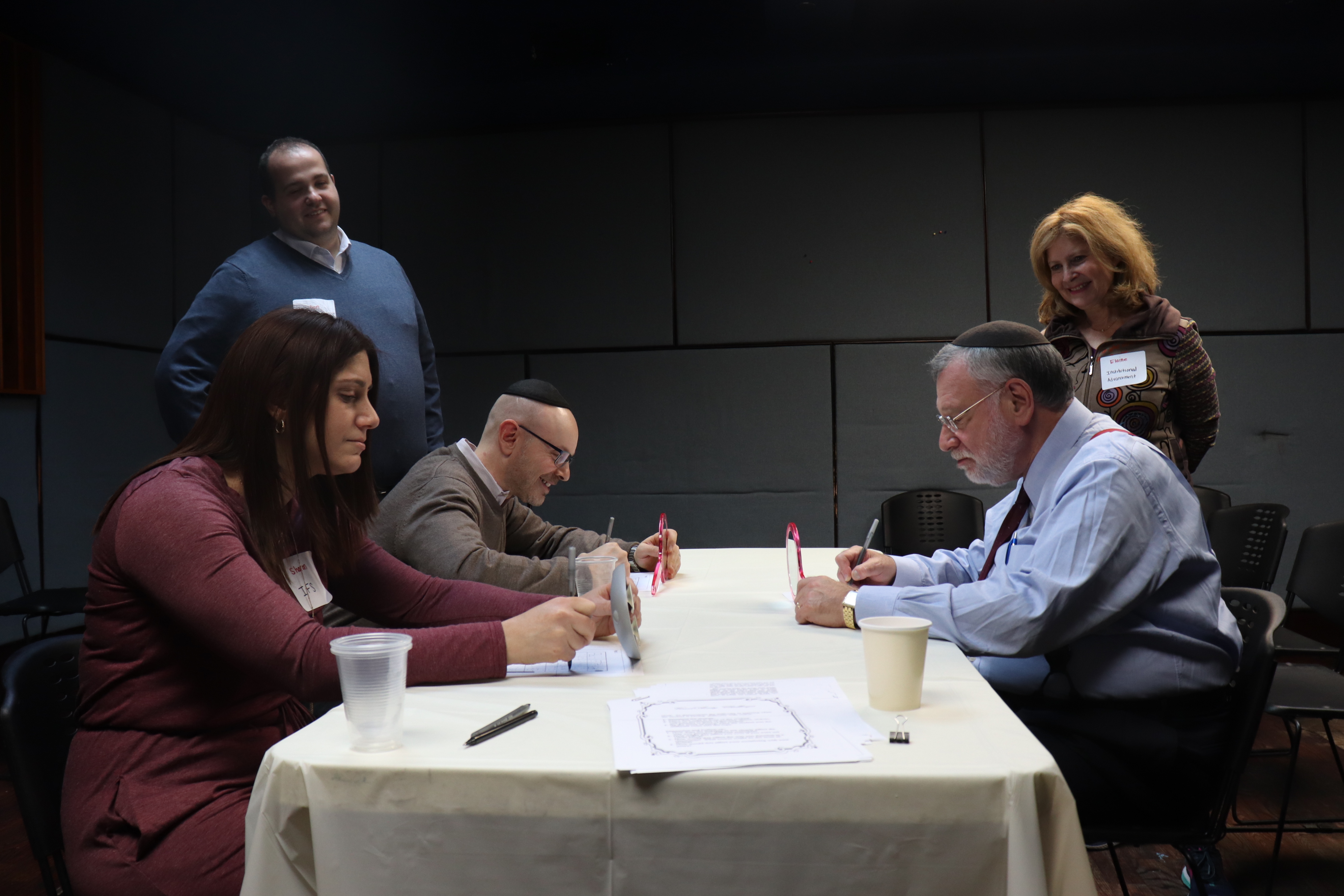
Verbal interactions with others can be one of most challenging aspects in the day of a Yachad member. Alongside Yachad members, we stocked the shelves of a mock store, role-played a job interview and ordered from a makeshift deli counter. (In my case, I received a delicious-looking half-pint of oats, a relatively mess-free material to re-use in future practice exercises.)
Three beneficiaries of day hab training, including one Yachad member who works in a Brooklyn Starbucks, spoke to us and answered our questions, informing us about their past and current jobs and how the vocational training has helped them. Job placement is also a key aspect of what Yachad provides for its members and has led to CVS and other major corporations adopting truly inclusive workplaces.
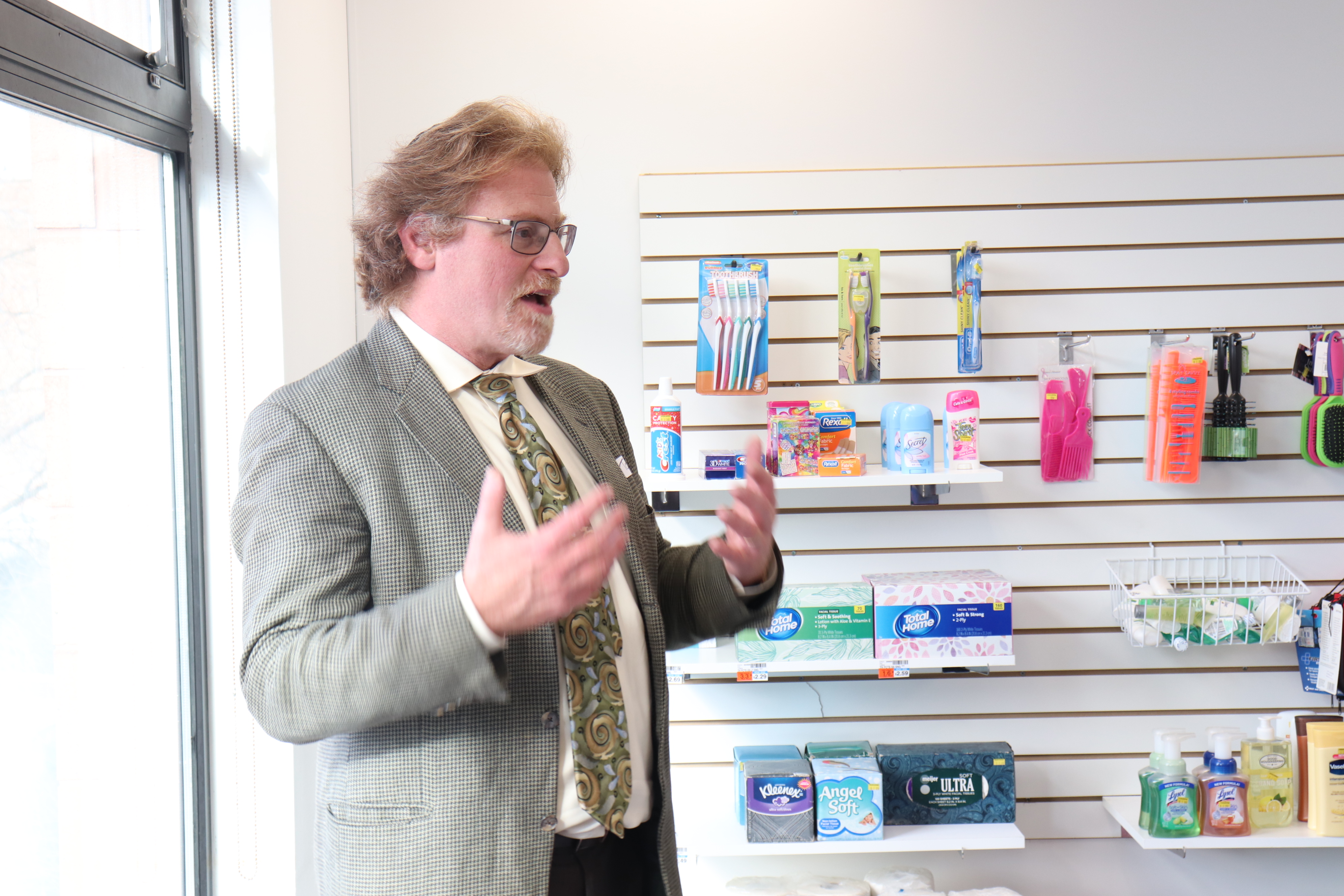
Closing out our day, the staff gathered for words of summation from Yachad staff, thanking us for our visit and encouraging us to help others understand the work they are doing each day.
OU Executive Vice President Allen Fagin, visibly moved by what he had just experienced, noted that despite having an intimate knowledge of the daily happenings of the entire Orthodox Union, it’s a different story altogether to witness firsthand the dedicated JUF day hab staff at work.
As we found ourselves just a couple of days before Chanukah, he encouraged all of us to absorb the light and warmth of the Chanukah candles, to harness it, and to help spread it to the communities we all serve, whether we work in human resources, accounting, marketing or any other part of the organization.
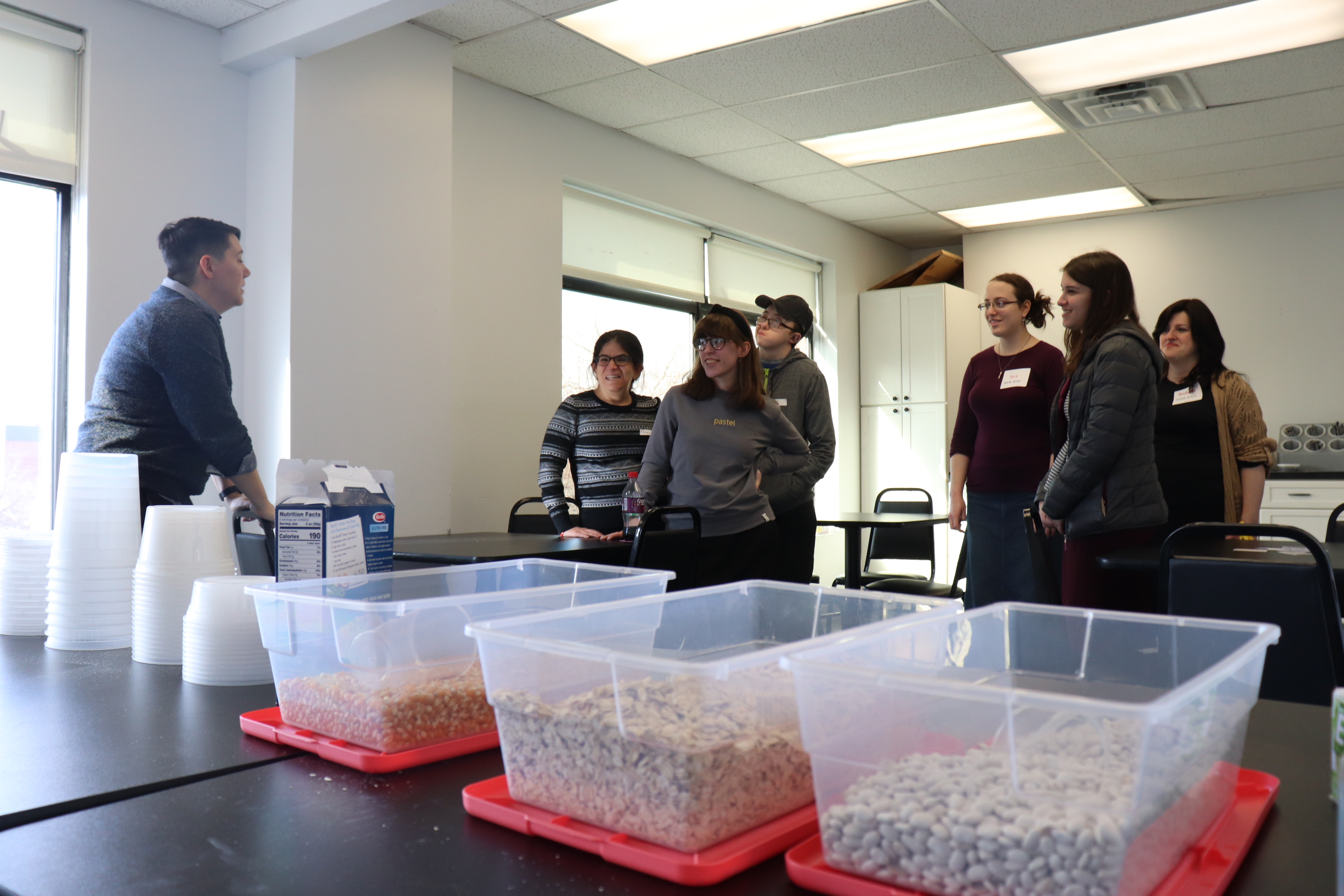
I think any of my colleagues would agree that, after such a day of absorbing an unbelievable amount of information and meeting some incredible people, by the time we left, we felt like we truly belonged.
If you would like to experience this or any OU program in action, please contact Rebecca Esses at 212.613.8182 or email essesr@ou.org.
The words of this author reflect his/her own opinions and do not necessarily represent the official position of the Orthodox Union.
